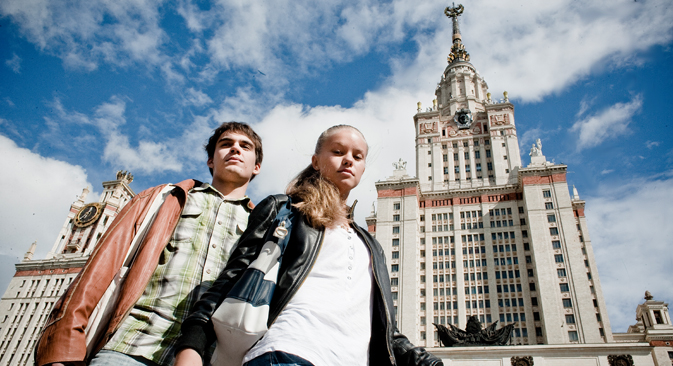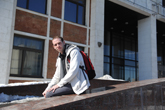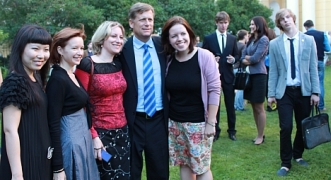Russian entrance exams open globally to students

More than 250,000 foreign students from 150 countries are currently enrolled in 750 Russian universities. Source: Kirill Lagutko
International students who have completed their secondary education and wish to study in Russia will be able to take entrance exams for Russian schools from abroad.
The Russian Ministry of Education and Science has developed the relevant bills and instructions and will have a public hearing this coming fall. By 2018, the share of foreign students in Russian universities is projected to increase to 10 percent.
“Our objective is to provide foreign university hopefuls with access to Russian entrance procedures at their place of residence,” a spokesperson for the ministry says. “Up to 15,000 foreign citizens from 150 countries will be enrolled in Russian universities on a budget-funded basis annually.”
These students will take exams in Russian science and cultural centers in their own countries. There are 70 centers of this kind in the world at present, and this number will rise to 104 centers by 2020; however, the procedure for taking exams remains vague, says Sergei Roshchin, provost at Moscow’s Higher School of Economics.
A package of documents will have to be drawn up by November, to regulate the entire educational “life cycle” — application, selection and admission, as well as transfers between classes and courses (a student may be expelled or transferred to a different university).
More than 250,000 foreign students from 150 countries are currently enrolled in 750 Russian universities. Most of them (40 percent) are from the CIS; the second- and third-largest groups of students come from China and India.
More than 40,000 foreign students have the Russian federal budget pay for their education. The Ministry of Education and Science expects the share of foreign students to expand from 2.3 percent currently to 6 percent in 2015 and 10 percent in 2018.
Foreigners prefer technical universities, which account for 20 percent of the total number of foreign students. Eighteen percent of foreigners enrolled in Russian universities train to become economists, lawyers and doctors, while only 11 percent will become programmers and teachers.
The project will only be successful if Russian universities recognize graduation certificates issued by foreign schools.
The new law on education, which comes into effect in Russia on Sept. 1, will introduce automatic recognition of foreign education certificates and qualifications issued by countries with which Russia has a bilateral international agreement.
Otherwise, foreign pupils will have to be reviewed by the Federal Service for Supervision in Education and Science.
Gulnara Krasnova, provost for international activities at the Peoples’ Friendship University of Russia, told Izvestia that graduates of foreign schools will be able to take entrance exams to enroll at Russian universities without coming to Russia.
Related:
MIT, Skolkovo selected Russia's young scholars
Educational programs remain central in U.S.-Russia collaboration
“They will take exams at Russian centers in many countries of the world. The best school certificates will enable foreign graduates to apply to a Russian university. If the application is approved, the graduate will take exams at home and then go to Russia,” Krasnova says.
Some universities with international agreements invite foreign graduates or accept online applications, she adds.
Viktor Grishin, provost at the Plekhanov Russian University of Economics, supports the initiative, but thinks that the ministry is still up against a serious challenge.
“The idea is excellent, but there’s a lot of work that needs to be done. We must compare levels of education in Russia and various countries.” Grishin says. “This project requires care and responsibility.”
Based
on materials from Izvestia and Kommersant.
All rights reserved by Rossiyskaya Gazeta.
Subscribe
to our newsletter!
Get the week's best stories straight to your inbox

